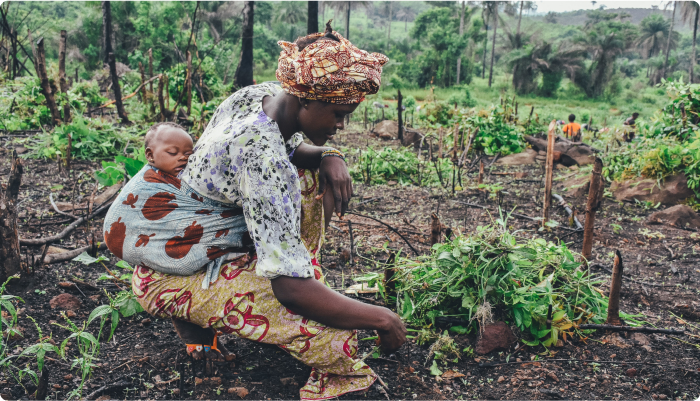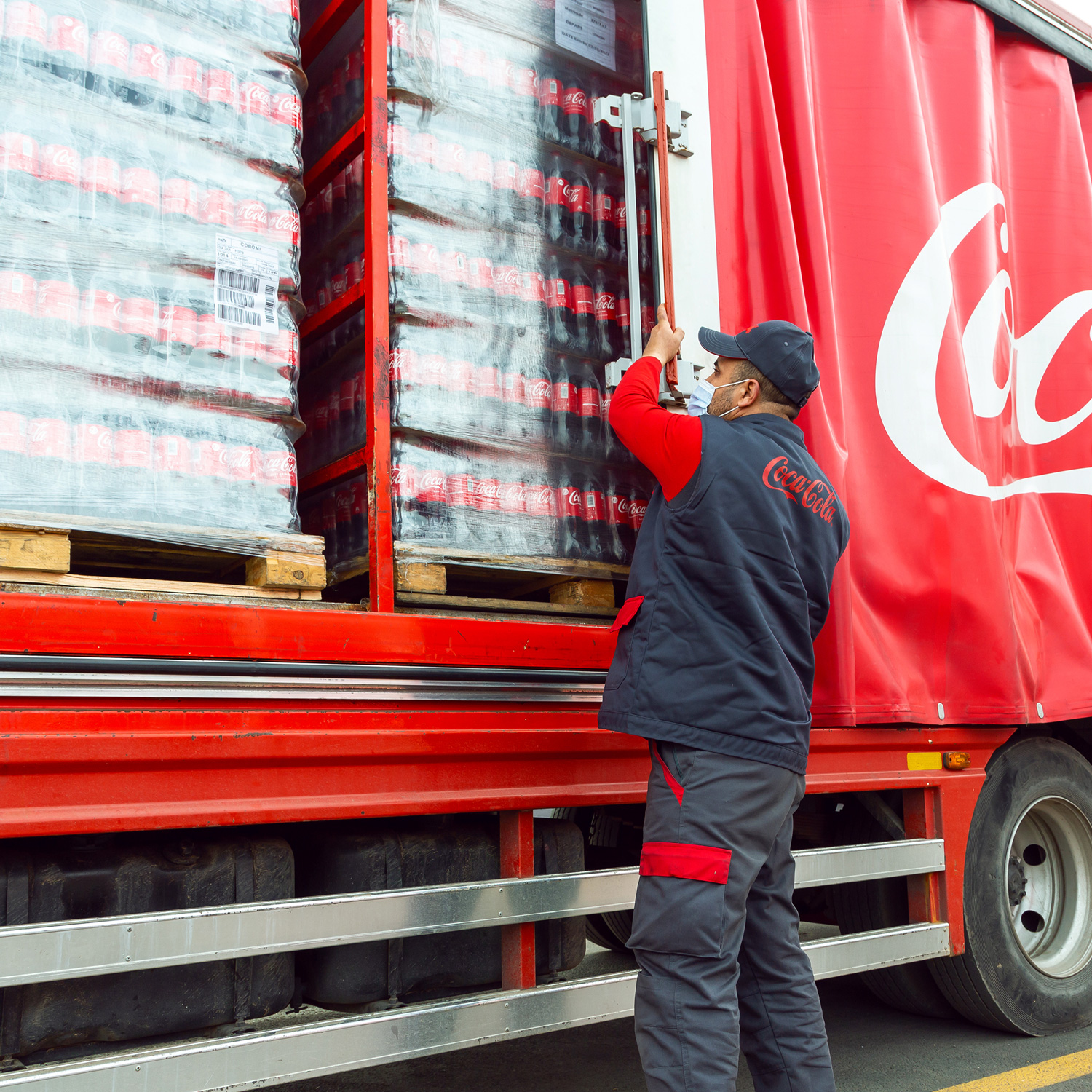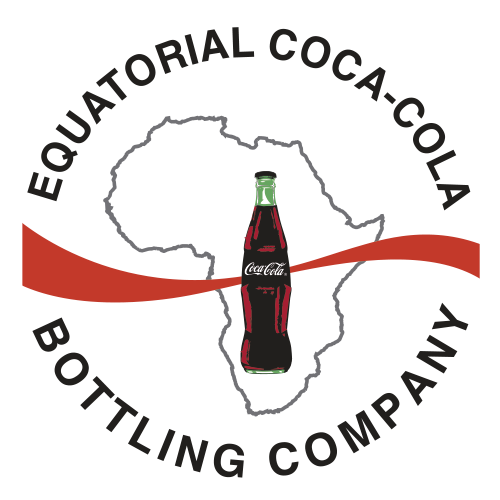
At Equatorial Coca-Cola Bottling Company (ECCBC), we are steadfast in our
commitment to sustainability, which is a core element of our operational ethos. By 2030, our goal is to ensure that all raw materials and packaging used in our production processes are sourced from sustainable practices.
This initiative is integral to our broader environmental strategy, aiming to minimize our ecological footprint and promote sustainability across the entire value chain.
To achieve this, we are actively engaging with suppliers who prioritize environmental sustainability in their operations. This includes promoting the use of recycled and recyclable materials in our packaging. We are also working on enhancing the traceability of our supply chain to ensure transparency and compliance with the highest sustainability standards.
Moreover, we are investing in partnerships and collaborations that promote innovative practices in sustainable sourcing. These collaborations aim to foster a shared commitment to reducing environmental impact, encouraging a shift towards more sustainable production practices industry wide.
Levers of change
Strategic suppliers’ sustainability assessment
Strategic suppliers CO2 footprint action plan
Sourcing localisation of materials and packaging
Sustainable agriculture (sugar)

Ecovadis
At ECCBC, our partnership with EcoVadis plays a crucial role in enhancing our sustainability practices. As a globally recognized sustainability assessment platform, EcoVadis helps us evaluate and improve our environmental, social, and ethical performance. This collaboration enables us to effectively manage our supply chain, ensuring that both upstream suppliers and downstream partners adhere to our high sustainability standards. By leveraging EcoVadis’ comprehensive metrics, we can monitor our performance, benchmark against peers, and maintain transparency with our stakeholders. Additionally, this partnership supports our commitment to responsible sourcing, allowing us to continuously assess and elevate the sustainability performance of our suppliers, reinforcing our dedication to environmental stewardship.

Transforming CO2 Sourcing for beverages
Our partnership with LINDE GAS ALGERIA marks a pivotal advancement in our commitment to sustainable sourcing. This collaboration involves a pioneering project aimed at transforming CO2 emissions management practices within the oil and gas industry. Together, we are developing a state-of-the-art system designed to capture and purify CO2 emissions, turning them into 100% foodgrade CO2 that will be used in our beverage production by the end of 2024.
This innovative approach not only significantly reduces the release of greenhouse gases but also utilizes these emissions as a valuable resource in our manufacturing process, effectively reducing our overall carbon footprint. By repurposing CO2, we are not only mitigating our environmental impact but also enhancing our operational sustainability.
This project exemplifies ECCBC’s proactive stance on environmental responsibility and our dedication to pioneering solutions that support both industry and community sustainability. We are excited about the potential of this initiative and look forward to sharing further developments as we continue to make strides towards a cleaner and greener future.


Transforming logistics by using recyclable-plastic pallets
At ECCBC, we are dedicated to improving our sustainability practices and operational efficiency. A significant part of this effort is our initiative to replace traditional wooden pallets with 100% recyclable plastic pallets. This transition not only supports environmental sustainability by minimizing deforestation but also optimizes our cost structure. Plastic pallets, made from recycled materials, are fully recyclable, promoting a circular economy and reducing waste.
Their durability surpasses that of wooden pallets, decreasing the need for frequent replacements and lowering maintenance costs, as they do not require treatments for pests and fungi. These pallets are lighter and more uniform in size, which enhances transport efficiency, reduces shipping costs, and decreases carbon emissions. Additionally, their compatibility with automated systems improves operational workflows in our warehouses and distribution centers. By adopting recyclable plastic pallets, ECCBC is taking a proactive step towards reducing our environmental impact while enhancing the efficiency and sustainability of our supply chain operations.
Cans sourcing
In Morocco, ECCBC has significantly advanced our sustainability initiatives, notably reducing our carbon footprint by localizing 100% of our sourcing needs. This strategic shift has effectively eliminated the need for over 1,000 shipping containers annually, enhancing operational efficiency and reducing environmental impacts associated with long-distance transportation. Central to these efforts is our partnership with CANPACK, a major player in the beverage packaging industry. The CANPACK plant in Morocco plays a crucial role in achieving our carbon reduction targets, having transitioned to using 100% renewable electricity since 2022, thereby significantly cutting operational carbon emissions.
Similarly, in Algeria, we’ve aligned our sourcing strategies with our ESG objectives by sourcing 70% of our needs from Tunisia, which has also led to the reduction of over 1,000 containers annually. This not only boosts operational efficiency but also strengthens our commitment to responsible sourcing and environmental stewardship across the region. Together, these initiatives in Morocco and Algeria exemplify ECCBC’s dedication to sustainability and our proactive approach to minimizing our environmental footprint.


Preforms local sourcing
In 2023, ECCBC achieved a significant milestone in our supply chain optimization by augmenting our local supply by 100 million units. This success was made possible through strategic collaborations with our local partners, underscoring our dedication to strengthening community ties and supporting local economies.
This initiative is a key component of our sustainability strategy, as sourcing locally reduces the need for long-distance transportation, thereby significantly improving our carbon footprint. By minimizing the distance materials and products need to travel, we not only reduce greenhouse gas emissions but also decrease our overall environmental impact.
Moreover, this increase in local sourcing has had a profound effect on our operational productivity. By relying on local supply chains, we have enhanced our ability to respond more quickly to market demands and reduce potential delays in production. This agility ensures that we can maintain a steady flow of products to meet consumer needs efficiently


